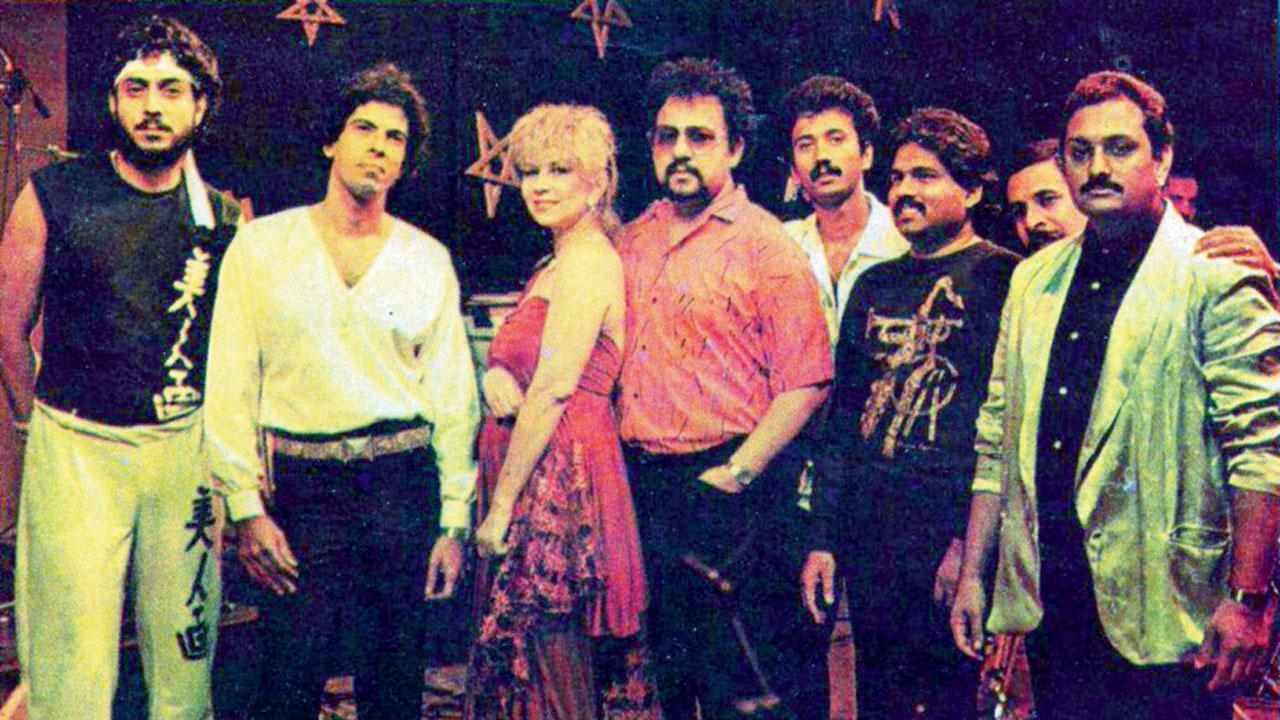A new biography of Louiz Banks charts the journey of the Godfather of jazz from the hills of Darjeeling to Kolkata, and finally to Mumbai

Banks (in red) with Pam Crain and Gary Lawyer to her immediate right
It was in the foggy mists of Darjeeling that the foundations of a musical career were laid that would eventually become the bedrock of jazz in India. That’s where Louiz Banks’s family shifted while he was still only four years old after his father, George, packed up his trumpet in Calcutta when his mentor - the legendary Teddy Weatherford - passed away. The hill station proved to be a fertile playing ground for the young Banks to hone his musicality. He started off playing the trumpet, guitar and piano in his formative years. But his focus shifted entirely to the latter instrument when, one day, he chanced upon a tune by Oscar Peterson, the iconic American pianist. “Daddy, I want to play like this,” he told George, a man who - though a hard taskmaster - had taken it upon himself to guide his son into the world of music.
ADVERTISEMENT
Louiz Banks in the olden days
These are the sort of insights into his life that readers can glean from Louiz Banks: A Symphony of Love (Rupa Publications), a biography that Ashis Ghatak has authored. It chronicles how Banks was not just the leader of his school band, but also an ace badminton, table tennis and carrom player, apart from excelling in mathematics. Ghatak has carried out painstaking research to chart how Banks’s journey started off playing at the Gymkhana Club in Darjeeling with his father’s band at the age of 13, before being given the chance to form his own act at Hotel Soaltee in Kathmandu when he was 27. A series of people - who Banks says he met through “divine intervention” - then led him to reach the dizzying heights that he has. One of them was a certain Mr Jaiswal who, impressed with what he saw at Hotel Soaltee, offered him a chance to shift base to Calcutta’s Hotel Hindustan International, marking Banks’s entry into the big league.
Ashis Ghatak (left) with Banks
It’s important to put Calcutta of the late ’60s and early ’70s in context here first. Park Street was to jazz music then what Broadway is to theatre in New York today. The nightclubs and hotels there hosted some of the finest practitioners of the musical form, the shining stars among who were saxophonist Braz Gonsalves and vocalist Pam Crain. The duo had got wind of a promising pianist who’d come from Nepal. So, they went to check him out one evening and were so taken in by his music that when, by happy coincidence, Gonsalves and Crain’s contracts ran out at the hotel they would play in, at the same time as Banks’s ran out at the hotel he was employed in, they decided to form their own group which took over the evening’s entertainment at Blue Fox, arguably the hottest nightclub of the time.
That’s where the next divine intervention in Banks’s life took place. One evening, after his gig, an attendant told Banks that a certain bespectacled man sitting at a table wanted to speak to him. This person asked Banks whether he would join him in Bollywood, introducing himself as RD Burman. The name meant nothing to the pianist, since the world of Hindi music was far removed from the jazz cocoon he was enmeshed in. Yet, he went to Bombay for a week and made some tunes with Burman, only to return back to Calcutta because that’s where his heart lay. But when the era of Naxalism in the late ’70s darkened the sheen of Park Street, Banks shifted base permanently to Bombay with his family and piano, and R300 in his pocket, because Burman had told him that his doors would always remain open.
The rest, as they say, is history. Banks became a force of nature in Bollywood and later composed iconic ad jingles such as Yehi hai right choice baby for a cola brand. The lad who’d picked up his musical chops in a hill station had finally found fame and fortune in the big city.
But even through all this, jazz remained Banks’s first love, and he did everything he could to bring more attention to it, forming big-ticket fusion bands including Sangam and Silk, and mentoring the next generation of musicians. “He is someone whose love for jazz is unwavering,” Ghatak tells us, adding that these days, Banks constantly records whatever new idea he has so that youngsters can pick them up after he is no more. The man turned 80 this week. It’s been a long journey from the foggy mists of Darjeeling to the glamour of Bombay. But thanks to this biography - and the recordings he keeps making - it will remain etched for posterity like Mile sur mera tumhara, the anthem that Banks had composed in 1988 to unify this nation.
 Subscribe today by clicking the link and stay updated with the latest news!" Click here!
Subscribe today by clicking the link and stay updated with the latest news!" Click here!






